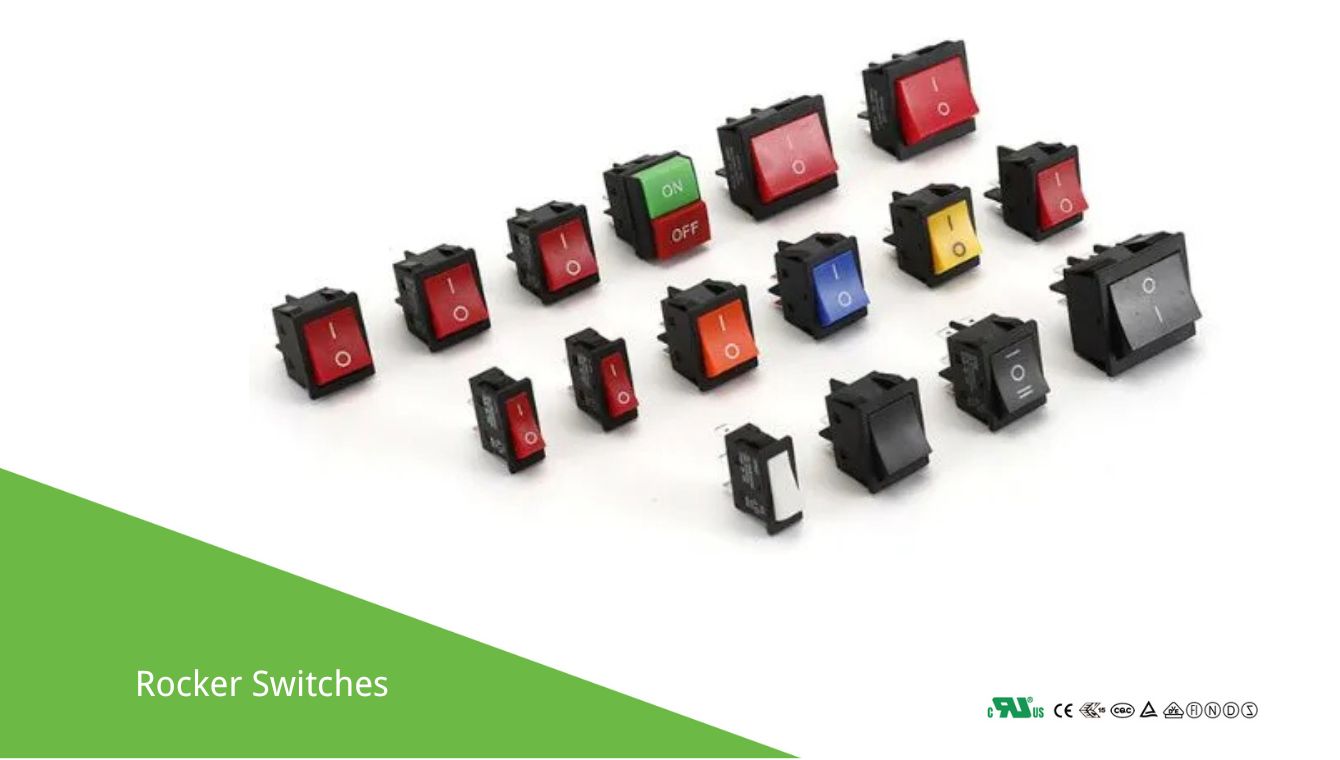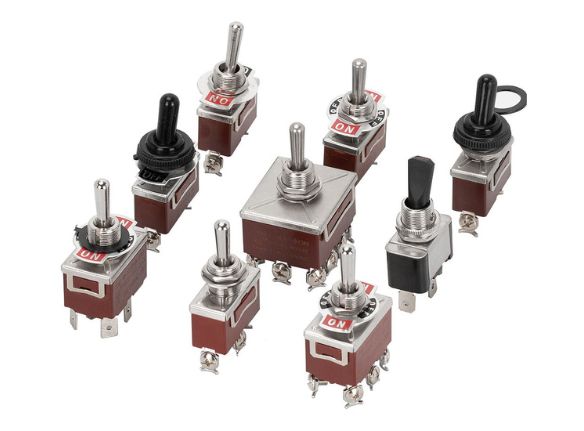What is a Momentary Toggle Switches?
A momentary toggle switch combines features of both momentary and toggle switches — it looks like a toggle switch but behaves like a momentary one.
Here’s a clear explanation 👇
🔹 Definition
A momentary toggle switch is a spring-loaded toggle switch that returns to its original position automatically when released. It only stays in the “ON” or “active” position while you hold or flip it.
🔹 Operation
-
You flip or hold the lever to activate a circuit.
-
When you let go, the lever springs back to its default position.
-
It provides temporary contact (momentary action).
🔹 Typical Markings
You’ll often see notations like:
-
(ON)-OFF → Momentary ON (returns to OFF)
-
ON-(OFF) → Momentary OFF (returns to ON)
-
(ON)-ON → Both positions are momentary
🔹 Common Applications
-
Engine start switches
-
Reset or horn controls
-
Electric windows or wipers
-
Industrial control panels requiring temporary actuation
🔹 Example
Think of a car horn switch — it only works while pressed or flipped, then springs back automatically.


The main differences between momentary and toggle switches come down to how they behave when you press or flip them—specifically, whether they stay in position or return automatically.
Here’s a breakdown:
| Feature | Momentary Switch | Toggle Switch |
| Operation | Only stays in the “on” or “active” state while being pressed or held. Returns to its original position when released. | Changes state and stays in that new position until flipped again. |
| Action Type | Temporary (momentary contact). | Maintained (latching contact). |
| Examples of Use | Doorbells, keyboards, car horn buttons, reset buttons. | Light switches, power switches on appliances, circuit breakers. |
| Typical Markings | Often labeled as (ON)-OFF or (ON)-ON — parentheses indicate a momentary position. | Labeled as ON-OFF, ON-ON, or similar without parentheses. |
| Mechanical Behavior | Spring-loaded to return to default. | Mechanically latches into position. |
| User Interaction | Requires continuous pressure or action. | Requires a single action to change and hold the state. |



